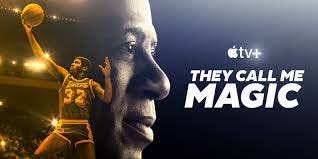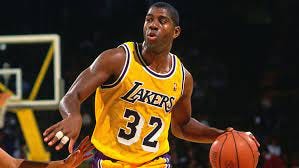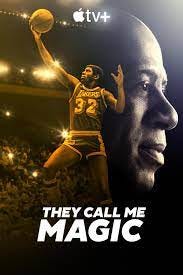We all have our lists of pandemic viewing, the things we got into because of forced closures and time spent indoors – and one of the big ones was The Last Dance – ostensibly about The Chicago Bulls basketball team, but really about Michael Jordan’s mile-wide competitive streak.
I lapped up The Last Dance, compulsive viewing – and I’m a basketball fan. But it was one of those shows that seemed to be equally addictive for first-timers or blatant non-fans.
One of my favourite things to do – even in that world we knew before Covid – is to line up an old basketball game, or a highlight reel, on YouTube. I tell people my favourite team is the Boston Celtics. And they laugh and say that it’s a tough time to be a fan. I say, ‘not really’. Because I am a fan of the Boston Celtics in 1985. I’m still watching – and rewatching – games from that season. When I’m not wearing my Celtics cap, I have a Philadelphia 76ers hat. And just last week someone said to me that you don’t see many Sixers fans down here in New Zealand. (She was from Philly). Next question of course was who my favourite player in the team is – and I told her it was a toss-up between Julius Erving and Charles Barkley. She got it straight away since Dr J was leading the team around the time I was born and “the Round Mound of Rebound” was one of the star attractions when I first got hooked on b-ball back in the very late 1980s and into the 1990s.
So, as much as I like to dip in and see what’s happening today with basketball I just can’t quite commit – and I’m drawn forever to the games from the 70s-90s with the 1980s being my absolute favourite era. That’s why the other team I often mention – and it usually gets a laugh – is The Detroit Pistons. That was my first basketball cap. My first branded ball. I was one of the ones watching The Last Dance and pretty much cheering for Isiah Thomas even though I knew how it all ended.
But The Bulls and The LA Lakers are the big, dominant teams (along with the Celtics) across the 1980s and into the 1990s. They were everyone’s favourite team in some way. Even if you were against them (I love the Celtics over the Lakers) you admire them. How could you not with players like James Worthy and Michael Cooper, with head coach Pat Riley. And of course, especially the legends Kareem Abdul-Jabbar and one Earvin “Magic” Johnson.
Magic is one of my all-time favourite basketball players, one of my heroes. That huge smile, his winning attitude, his awesome talent, his story on and off the court, which includes the great rivalry with Larry Bird, who, push comes to shove (and it usually did) is my all-time favourite player.
Magic and Dr. J were the ones that first hooked me. Long before I knew about Jordan or Isiah and the dozens of others that I would be wowed by.
So, it was a great treat yesterday, after doing my weekend chores, to find the time to enjoy the entire four-part Apple + documentary series, They Call Me Magic. Compulsive viewing.
The young Earvin Johnson battled against men in after-school hustles, and usually came out on top which is why he was so dominant as a college player – skipping his final year to take the draft to the Lakers. He arrived when he was still a teen, in his early 20s he was part of the revolution, the Lakers and their famous “showtime” era putting professional basketball in front of millions, creating a celebrity culture both for it and in terms of the audience engagement – the likes of Jack Nicholson forever front and centre to see the LA team.
Then to the rivalry with Bird, the two dominant players – if they were on then their team usually won, so it was like mega-powers colliding when the Celtics and Lakers would square off.
Still near the height of his powers, Johnson contracts the HIV virus. He is forced to retire from the Lakers. And he goes into advocacy for HIV/AIDS – he goes back onto the court, including to represent America as part of the 1992 “Dream Team” that obviously won the gold medal at the Olympics. Johnson’s involvement in sport at that time, and his advocacy gives some crucial understanding to the virus – it’s first suggested he’ll have maybe a couple of years to live. He is visible in the community, he is hugely successful, a sporting legend, and he gives a voice to the fact that HIV is not AIDS and that AIDS is not the “gay cancer” that it had first been reported as – he is a role model too for the black community, a dominant statistic in HIV/AIDS numbers.
There have been some tepid reviews of Call Me Magic; people wanting The Last Dance Pt. II. There isn’t a lot of basketball to watch here – but you will get a lot of Johnson, plenty of chat from his wife Cookie, and an amazing cast of celebrities from basketball (Jordan, Barkley, Isiah, Bird, Kareem) from Hollywood (Jimmy Kimmel, Rob Lowe), politics (Bill Clinton, Barack Obama) and music (Snoop Dogg).
The first two episodes cover off his on-court career and paint an amazing picture of a guy who had it all in terms of charm, charisma, and talent. He would play a blinder then head to a disco club in the early 1980s and throw down a set of Jamaican funk from behind the decks. He'd be paid twice – once for each job – and worshipped doubly too. There’s always ego. In everyone and everything. But there’s no Michael Jordan addiction-to-competition here. Instead in the final two episodes, and post-diagnosis, we go on to learn about Johnson’s influence as a businessman, post-basketball; his advocacy, his visibility as a superstar parent of a gay teen – it might not seem like anything now, but back then it was the prying media belittling a child’s effort to just live and discover themselves; forced somewhat to do so under a spotlight.
Hagiography is the word that’s been lobbed – too easily – at this documentary series. As if we’re addicted to seeing pain and stumbling, as if we want to see failure of some kind (also, to miss the fact that those things are clearly part of this story anyway is in fact its own failing).
Johnson was a towering influence in the sport. He still is. One of the all-time greats. It’s clear throughout this series, that his off-court acumen was coveted by many of his team-mates and competitors; his abilities as a businessman and his generosity to give back to the community is also seen as an important influence on a generation or two of basketball stars that followed in his wake.
And then there’s the family story. Which is subtle, and warm and inspiring too.
I watched the whole series and thought that I would probably just start watching it again.
But I first watched one of my favourite and most-watched basketball clips. A 10-minute “highlight reel” of Magic’s best on-court work.
My favourite thing about him as a player is the assists. A funny thing in basketball is that the “assist” – that’s the pass that sets up and leads to a goal, the final pass that creates the opportunity for a basket – is counted as a statistic. You might score 20 or 40 or 60 points in a game. But it will also tell you that you had 5 or 10 or 20 assists, meaning you were the playmaker, the one that set up and created the opportunity for someone else to convert. It’s one of sport’s more charming and I think most telling statistics. Johnson could dunk, he could hook the ball in from seemingly anywhere, he has his share of buzzer-beaters to win the match and he shot three-pointers as well as cleanly nailing it from the foul line – but he is one of the all-time leaders in assists. An MVP. And all-star. And the proof to me that basketball is one of the greatest of team sports is in the very tallying of assists.
And the reason they called him “Magic” was because he made things happen that didn’t seem logical, that ‘normal’ and ‘regular’ players could not summon. You will see that in some of the shots for goal, of course. But you will see it more often in the no-look passes, in the behind the back fakes, the way he will draw several players to him and then make an opportunity for someone else; how the conversion to points doesn’t have to be his move but he can have a hand in it.
In the documentary it’s fair to see that the man who preferred, off-court, to just be Earvin Johnson, to step aside from the “Magic”, to almost disown that personality, to pack away the persona like a folded-up clown costume, has had his fair share of crucial assists as well.








So many classic games on Youtube - the Celtics v Pistons series were an amazing way to wile away the lockdowns. Go Celts!